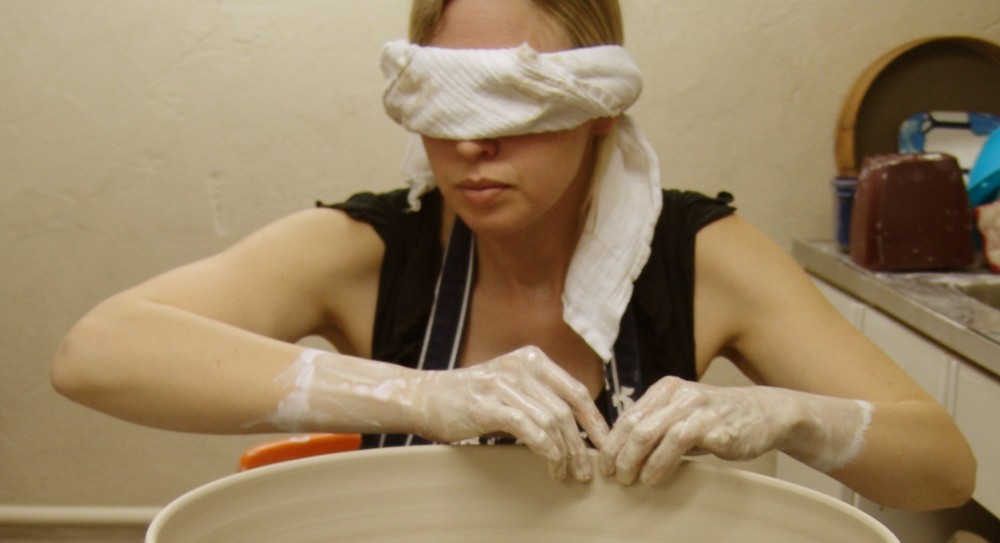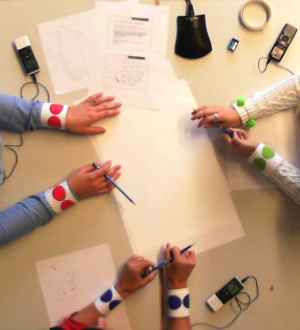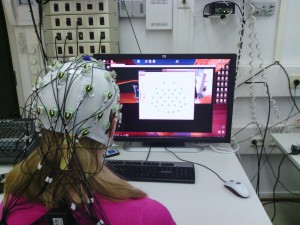(Original text by Camilla Groth in february 2013)
Design Exploration and Experimentation
The Design Exploration and Experimentation (DEE) course is an educational platform focusing on design students’ personal creative process and their individual way of managing its phases. It supports artistic and exploratory ways in design, and its focus is on students’ unique expression. The underlying values of the platform relate to the importance of self-understanding and awareness of personal creativity as the foundation for the capability to practice empathic and thoughtful design.
The optional DEE is a master level course (4th and 5th grade design students) arranged for a small group of design students in Aalto University School of Arts, Design and Architecture. The roots of the course are in studio-based practice and practice-led research. The course lasts 8 weeks, and its program is built around a personal project with the given theme. These artifacts will be presented in a collectively built exhibition at the end of the course, arranged this year at the Atski Gallery in Helsinki during the period 7-14 of March 2013. The freedom to choose one’s own task and outcome is supported by providing a course frame, which consists of numerous tasks as sources for inspiration, weekly process-sharing sessions, and personal tutorials. In addition, the students document the creative process and reflect on it in several ways.
“Somehow, the idea of an artistic interpretation seemed really tempting. I’ve been thinking that this is probably the only course I can do something like this so why wouldn’t I also try to develop myself in the process. I could do the whole project from the basis of self-reflection and self-development.” (Student reflection, 18 February 2013)
By ethnographic engagement, making sensitive observations, and gathering rich data during the course, we will be able to capture how students experience their personal creative process. The researchers engagement and position inside the group give us a privileged position to follow, also, the uncertainties, challenges and disappointments students face. Our objective is to develop the support-feedback-framework of the course to support each individual student in her unique way of flourishing.
Heinävesi trip
The DEE course is every year taking the participant students on to a trip to some destination that serves as a catalyst of ideation for the chosen topic of that year. Since the topic of the year 2013 is Faith, the course trip headed to Heinävesi, famous for the Valamo monastery and Lintula convent. The 13 participants of this years course consisted of Finnish and foreign students. An old wooden school building was reserved as a camp and local people catered for the food and transport during the five day visit.
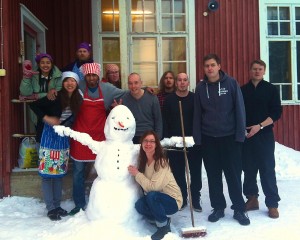
Photo by Jaana Lönnros
The program at Heinävesi included a visit to the Valamo monastery and the Lintula convent as well as participating in an orthodox ceremony and meeting and talking in depth with representatives from these instaces.
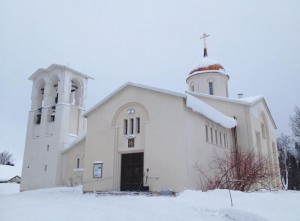
Valamo monastery. Photo by Jessie Hsu
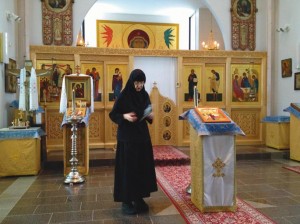
Lintula convent. Photo by Jessie Hsu
“In the Lintula convent we met a nun, and we had a short discussion about inner peace. I think I don’t have inner peace yet. But I believe that I will find it later in my life. I don’t say I don’t have inner peace at all, but something is still missing. And I think it is mostly related to my professional identity.” (Student reflection, 18 February 2013)
Along with these official visits the meeting with the locals opened an other view of religious beleif as stories of spirits and unsusual experiences were unfolding. The local food and customs such as the art of baking karjalanpiirakka, sauna bathing and even igloo making made up an unforgettable experience for many participants, perhaps especially the foreign students. The igloo was even used as a camp as some students slept over night inside it.
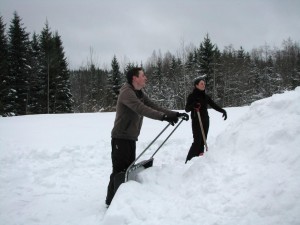
Igloo building. Photo by Gabriela Rubini
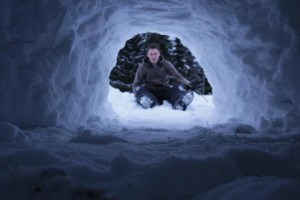
Finishing the igloo. Photo by Lisa Gerkens
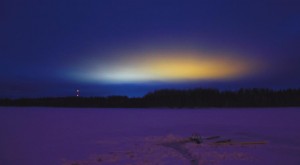
Avanto. Photo by Jessie Hsu
“When taking pictures alone in the dark, fear and loneliness almost killed me.” (Student reflection, 4 February 2013)
“Damn, that I enjoyed having these daily walks through beautiful clean snowy landscape under the bright stars. (…) It has to be said that the Finnish nature can be so extremely mesmerizing, you almost forget the power it has when you live in big cities where you can find only few trees as a some kind of visual backdrop for parks. Something interesting could spin-off from this subject…” (Student reflection, 4 February 2013)
